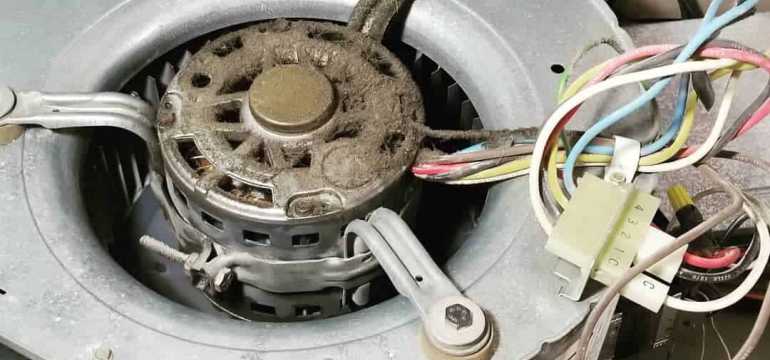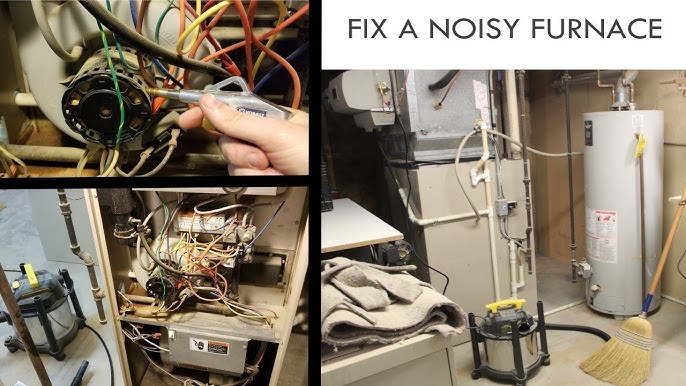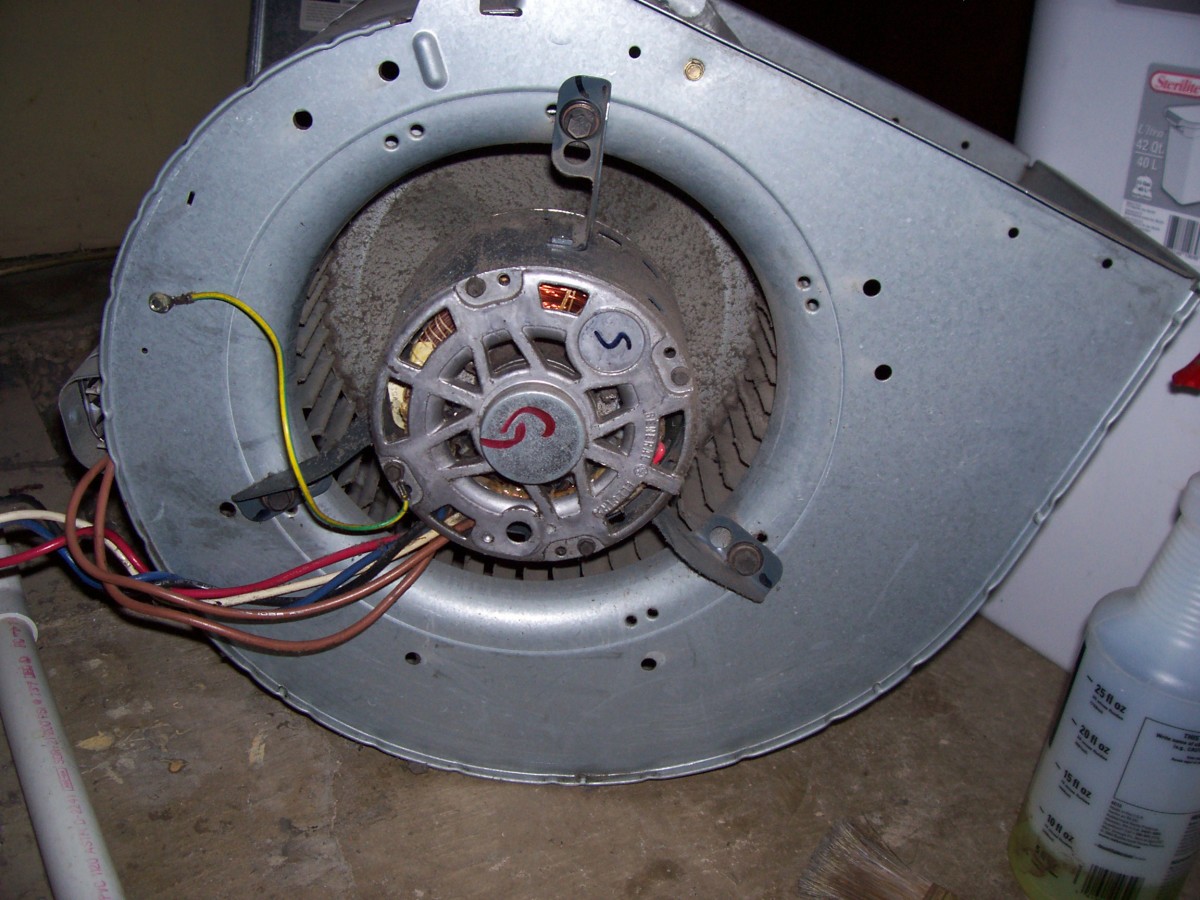Imagine it’s a chilly morning, and you’re counting on your furnace to keep your home warm and cozy. But as you switch it on, you notice something odd—the furnace blower motor is making an unusual noise when starting.
This unexpected sound can be more than just a minor annoyance; it could be a signal of underlying issues that need your immediate attention. You might be wondering whether this noise indicates a serious problem or just a minor hiccup.
Understanding what causes your furnace blower motor to make noise and knowing how to address it can save you from discomfort and unexpected costs. Stay with us as we explore the reasons behind this noise and offer solutions that help you keep your furnace running smoothly, ensuring your home remains a haven of warmth and comfort.
Common Causes Of Furnace Blower Noise
Your furnace blower motor making noise when starting can be frustrating and concerning. It’s crucial to identify the root of the problem to prevent further damage and ensure your home stays warm and comfortable. A noisy blower motor often signals underlying issues that need attention. Let’s dive into some common causes of furnace blower noise and understand how you can tackle them effectively.
Loose Components
Loose components are a frequent culprit behind noisy blower motors. If screws or bolts are not tightened properly, they can rattle or vibrate, creating unwanted noise. Regular maintenance checks can help you spot these loose parts before they become a problem.
Have you ever noticed a buzzing sound when your furnace kicks on? It might be due to loose panels or mounting brackets. Ensuring these components are securely fastened will not only reduce noise but extend the life of your furnace.
Worn Bearings
Worn bearings can turn your furnace blower into a noisy nuisance. Bearings support the motor shaft, allowing it to spin smoothly. Over time, they can wear out, causing grinding or squealing noises as the shaft struggles to turn.
Think of your car’s engine. If bearings wear out, you’ll hear it. The same goes for your furnace. Replacing worn bearings can quiet the noise and prevent damage to the motor itself.
Dirty Or Clogged Blower
A dirty or clogged blower can lead to a noisy furnace. Dust, dirt, and debris accumulate over time, obstructing airflow and causing the motor to work harder. This strain can produce a loud, humming noise as the blower struggles to push air through.
Imagine a vacuum cleaner with a clogged filter—it makes more noise, right? Keeping your blower clean can enhance performance and reduce noise, much like a well-maintained vacuum.
Have you experienced any of these issues with your furnace blower motor? Recognizing these common causes can empower you to address them promptly, ensuring your home remains a peaceful haven. Regular maintenance and timely repairs can silence the noise and keep your furnace running smoothly. So, next time your furnace makes a racket, ask yourself: could it be one of these common issues?

Credit: www.h2ouse.org
Identifying The Noise Type
Strange sounds from your furnace blower motor might indicate specific issues. Rattling often signals loose parts, while squealing points to a worn belt. Identifying these noises early can prevent bigger problems later.
Identifying the noise type when your furnace blower motor starts is crucial for diagnosing the problem and finding a solution. A noisy furnace can be more than just an annoyance—it might indicate a mechanical issue that needs attention. Understanding the specific sound can guide you towards fixing it promptly. Let’s delve into the types of noises you might hear.Rattling Sounds
Rattling sounds can make you feel like your furnace is shaking apart. This noise often suggests loose components. Imagine the unsettling sound of a loose bolt in a washing machine. You might have experienced similar situations where a simple tightening of screws made all the difference. Check if any parts need securing. A quick check with a wrench might save you from future headaches.Squealing Noises
Squealing noises are high-pitched and hard to ignore. They usually point to issues with the blower belt. Have you ever heard a car’s fan belt screech? This is a similar sound. These noises can mean the belt is worn or misaligned. Replacing or adjusting it can restore peace and quiet. Think about how much smoother your drive becomes with a new fan belt. Your furnace deserves the same care.Grinding Sounds
Grinding sounds are more serious and can signal motor bearing problems. Picture the grating noise of a door hinge that desperately needs oil. This noise can mean the bearings are failing, and you might need professional help. Lubricating the motor bearings might be an easy fix. Consider how a little oil can transform a creaky door into a silent one. Your furnace motor might just need the same TLC. Listening to your furnace’s noise is like hearing its cry for help. What sounds are you ignoring? Identifying the noise type can be your first step towards a quieter, more efficient home environment.Diy Troubleshooting Tips
Strange noises from a furnace blower motor at startup can signal trouble. Loose belts or debris often cause these sounds. Regularly inspect and clean components to prevent serious damage.
When your furnace blower motor makes noise at startup, it can be unsettling. A noisy blower motor often signals underlying issues. Addressing these problems early can prevent costly repairs. Here are some DIY troubleshooting tips to tackle this issue. These steps can help you identify and possibly resolve the problem.Inspecting The Blower Motor
Begin with a visual inspection. Turn off the furnace power. Look for visible damage or wear on the motor. Check for any signs of burning or scorching. A burnt smell or discoloration can indicate motor issues. If you find damage, consider consulting a professional.Checking For Loose Parts
Loose parts can cause rattling or banging sounds. Tighten any screws or bolts you find. Ensure all components are securely fastened. If parts are worn or broken, they may need replacement. A screwdriver can help tighten loose connections. Regular checks can prevent future noise issues.Cleaning The Blower
Dust and debris can accumulate in the blower. This buildup can lead to noises and inefficiency. Begin by removing dust from the blower blades. Use a soft brush or cloth for this task. Cleaning the blower ensures smoother operation. It also extends the motor’s lifespan. Regular cleaning keeps your furnace running quietly.
Credit: www.youtube.com
When To Call A Professional
Strange noises from your furnace blower motor at startup might signal a problem. Call a professional to avoid further damage. Early intervention can save time and money.
When your furnace blower motor makes noise upon starting, it can be a clear sign that something’s not quite right. It’s tempting to try and fix these issues yourself, especially if you enjoy DIY projects. However, some problems are best left to professionals. Knowing when to reach out for expert help can save you from costly repairs and ensure your home remains safe and warm.Complex Mechanical Issues
Mechanical issues are not always straightforward. A noisy blower motor might be due to worn bearings or a loose belt. These problems can worsen quickly. You might think a quick tightening will solve it, but improper adjustments can lead to further damage. Professionals have the right tools and knowledge to handle intricate mechanical challenges efficiently.Electrical Problems
Electrical issues require caution. A faulty motor could be the result of wiring problems. Attempting to fix electrical components without the proper expertise can be dangerous. You risk damaging the furnace or even causing an electrical fire. A licensed technician can safely diagnose and repair electrical faults, ensuring everything is up to code.Safety Concerns
Safety should always come first. Strange noises might indicate a more serious problem that can compromise your home’s safety. If you smell burning or see smoke, it’s crucial to act immediately. Professionals are trained to identify and fix safety hazards. They ensure your furnace operates safely, giving you peace of mind. Have you ever tried fixing something only to make it worse? Sometimes, the best decision is to call a professional. They’re equipped to handle issues you might not even be aware of. Keeping your furnace in top shape is essential for comfort and safety. Would you risk it for a momentary DIY thrill?Preventive Maintenance
A noisy furnace blower motor signals potential issues. Regular preventive maintenance can help identify and fix these problems early. Cleaning and lubricating parts often prevent noise, ensuring smooth operation.
A furnace blower motor making noise when starting can be a signal that something’s amiss. While it might be easy to ignore, proactive steps can prevent costly repairs down the line. Implementing preventive maintenance is crucial for ensuring your furnace runs smoothly and quietly. Not only does this help in avoiding unexpected breakdowns, but it also extends the lifespan of your system. Let’s dive into some practical ways you can maintain your furnace blower motor effectively.Regular Cleaning
Dust and debris can easily accumulate in the blower motor, causing it to work harder and make noise. Regular cleaning is essential to keep these particles at bay. A simple vacuum cleaner can be your best friend here. By regularly cleaning around the motor and its components, you can drastically reduce noise levels. Have you ever noticed how a clean furnace seems to work more efficiently? Keeping it free from dust ensures that it operates smoothly and silently.Routine Inspections
Routine inspections are your opportunity to spot potential issues before they become major problems. Scheduling these inspections can save you both time and money. During an inspection, check for loose parts or signs of wear. Even a minor misalignment can lead to significant noise and damage over time. Think of these inspections as health check-ups for your furnace. Are you ensuring your system gets the attention it deserves?Timely Repairs
Ignoring small issues can lead to larger, more expensive problems. Timely repairs are essential to keeping your furnace in top condition. If you hear unusual sounds, don’t wait to address them. A quick fix today can prevent a big repair bill tomorrow. Consider this: is it worth the risk of a total breakdown? Tackling repairs promptly ensures your furnace runs efficiently and quietly. By prioritizing these preventive maintenance steps, you’re investing in peace of mind and a quieter home environment.
Credit: discover.hubpages.com
Frequently Asked Questions
Why Is My Furnace Blower Motor Noisy?
A noisy furnace blower motor may indicate worn bearings or debris. Regular maintenance can help prevent these issues.
How Can I Fix A Noisy Blower Motor?
Check for loose parts or debris. Tighten connections and clean the area. Consult a technician if noise persists.
Is A Noisy Blower Motor Dangerous?
It can lead to larger problems if ignored. Address the noise promptly to avoid costly repairs.
Should I Replace A Noisy Blower Motor?
Consider replacement if noise continues after maintenance. A technician can advise on the best solution.
How Often Should I Service My Furnace Blower?
Service your furnace blower at least once a year. Regular checks help ensure smooth operation.
Conclusion
Fixing a noisy furnace blower motor can be simple. Check for loose parts first. Tighten any screws or bolts you find. Clean the blower motor regularly. Dust can make it noisy. Lubricate the motor bearings if needed. This keeps it running smoothly.
If noise persists, a professional check is wise. They can spot hidden issues. Regular maintenance prevents future problems. It saves time and money in the long run. Keep your furnace quiet and efficient. A smooth start makes for a cozy home.





